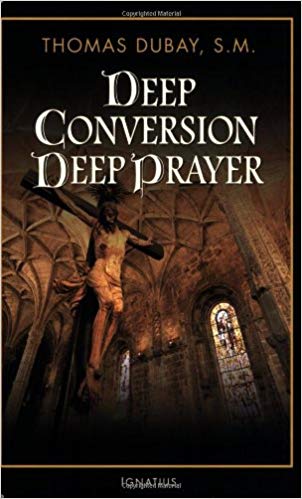Podcast: Play in new window | Download (Duration: 30:11 — 20.8MB) | Embed
Subscribe: Apple Podcasts | Spotify | Amazon Music | Android | Pandora | iHeartRadio | JioSaavn | Podchaser | Gaana | Podcast Index | Email | TuneIn | Deezer | Anghami | RSS | More

Dr. Matthew Bunson discusses the life, times and teachings of St. Hildegard von Bingen
Born: September 16, 1098, Bermersheim vor der Höhe, Germany
Died: September 17, 1179, Bingen am Rhein, Germany
Film music credits: Vision – From the Life of Hildegard von Bingen
From Vatican.va, an excerpt from the teachings of Pope Benedict XVI
APOSTOLIC LETTER
Proclaiming Saint Hildegard of Bingen,
professed nun of the Order of Saint Benedict,
a Doctor of the Universal Church
5. Hildegard’s anthropology begins from the biblical narrative of the creation of man (Gen 1:26), made in the image and likeness of God. Man, according to Hildegard’s biblically inspired cosmology, contains all the elements of the world because the entire universe is recapitulated in him; he is formed from the very matter of creation. The human person can therefore consciously enter into a relationship with God. This does not happen through a direct vision, but, in the words of Saint Paul, as “in a mirror” (1 Cor 13:12). The divine image in man consists in his rationality, structured as intellect and will. Thanks to his intellect, man can distinguish between good and evil; thanks to his will, he is spurred to action.
Human beings are seen as a unity of body and soul. The German mystic shows a positive appreciation of corporeity and providential value is given even to the body’s weaknesses. The body is not a weight from which to be delivered. Although human beings are weak and frail, this “teaches” them a sense of creatureliness and humility, protecting them from pride and arrogance. Hildegard contemplated in a vision the souls of the blessed in paradise waiting to be rejoined to their bodies. Our bodies, like the body of Christ, are oriented to the glorious resurrection, to the supreme transformation for eternal life. The very vision of God, in which eternal life consists, cannot be definitively achieved without the body.
The human being exists in both the male and female form. Hildegard recognized that a relationship of reciprocity and a substantial equality between man and woman is rooted in this ontological structure of the human condition. Nevertheless the mystery of sin also dwells in humanity, and was manifested in history for the first time precisely in the relationship between Adam and Eve. Unlike other medieval authors who saw Eve’s weakness as the cause of the Fall, Hildegard places it above all in Adam’s immoderate passion for her.
Even in their condition as sinners, men and women continue to be the recipients of God’s love, because God’s love is unconditional and, after the Fall, acquires the face of mercy. Even the punishment that God inflicts on the man and woman brings out the merciful love of the Creator. In this regard, the most precise description of the human creature is that of someone on a journey, homo viator. On this pilgrimage towards the homeland, the human person is called to a struggle in order constantly to choose what is good and avoid evil.
The constant choice of good produces a virtuous life. The Son of God made man is the subject of all virtues, therefore the imitation of Christ consists precisely in living a virtuous life in communion with Christ. The power of virtue derives from the Holy Spirit, poured into the hearts of believers, who brings about upright behaviour. This is the purpose of human existence. In this way man experiences his Christ-like perfection.
So as to achieve this goal, the Lord has given his Church the sacraments
6. So as to achieve this goal, the Lord has given his Church the sacraments. Salvation and the perfection of the human being are not achieved through the effort of the will alone, but rather through the gifts of grace that God grants in the Church.
The Church herself is the first sacrament that God places in the world so that she may communicate salvation to mankind. The Church, built up from “living souls”, may rightly be considered virgin, bride and mother, and thus resembles closely the historical and mystical figure of the Mother of God. The Church communicates salvation first of all by keeping and proclaiming the two great mysteries of the Trinity and the Incarnation, which are like the two “primary sacraments”; and then through administration of the other sacraments.
The summit of the sacramental nature of the Church is the Eucharist. The sacraments produce the sanctification of believers, salvation and purification from sin, redemption and charity and all the other virtues. However, to repeat, the Church lives because God within her has manifested his intraTrinitarian love, which was revealed in Christ. The Lord Jesus is the mediator par excellence. From the Trinitarian womb he comes to encounter man and from Mary’s womb he encounters God. As the Son of God, he is love incarnate; as the Son of Mary, he is humanity’s representative before the throne of God.
The human person can have an experience of God. Relationship with him, in fact, is not lived solely in the sphere of rationality, but involves the person totally. All the external and internal senses of the human being are involved in the experience of God. “But man was created in the image and likeness of God, so that he might act through the five bodily senses; he is not divided by them, rather through them he is wise, knowledgeable and intelligent in doing his work (…). For this very reason, because man is wise, knowledgeable and intelligent, he knows creation; he knows God — whom he cannot see except by faith — through creation and his great works, even if with his five senses he barely comprehends them” (Explanatio Symboli Sancti Athanasii in PL 197, 1073). This experiential process finds once again, its fullness in participation in the sacraments.
Hildegard also saw contradictions in the lives of individual members of the faithful and reported the most deplorable situations. She emphasized in particular that individualism in doctrine and in practice on the part of both lay people and ordained ministers is an expression of pride and constitutes the main obstacle to the Church’s evangelizing mission to non-Christians.
One of the salient points of Hildegard’s magisterium was her heartfelt exhortation to a virtuous life addressed to consecrated men and women. Her understanding of the consecrated life is a true “theological metaphysics”, because it is firmly rooted in the theological virtue of faith, which is the source and constant impulse to full commitment in obedience, poverty and chastity. In living out the evangelical counsels, the consecrated person shares in the experience of Christ, poor, chaste and obedient, and follows in his footsteps in daily life. This is fundamental in the consecrated life.
The monastic liturgy and the interiorization of sacred Scripture are central to her thought
7. Hildegard’s eminent doctrine echoes the teaching of the Apostles, the Fathers and writings of her own day, while it finds a constant point of reference in the Rule of Saint Benedict. The monastic liturgy and the interiorization of sacred Scripture are central to her thought which, focusing on the mystery of the Incarnation, is expressed in a profound unity of style and inner content that runs through all her writings.
The teaching of the holy Benedictine nun stands as a beacon for homo viator. Her message appears extraordinarily timely in today’s world, which is especially sensitive to the values that she proposed and lived. For example, we think of Hildegard’s charismatic and speculative capacity, which offers a lively incentive to theological research; her reflection on the mystery of Christ, considered in its beauty; the dialogue of the Church and theology with culture, science and contemporary art; the ideal of the consecrated life as a possibility for human fulfilment; her appreciation of the liturgy as a celebration of life; her understanding of the reform of the Church, not as an empty change of structure but as conversion of heart; her sensitivity to nature, whose laws are to be safeguarded and not violated.
For these reasons the attribution of the title of Doctor of the Universal Church to Hildegard of Bingen has great significance for today’s world and an extraordinary importance for women. In Hildegard are expressed the most noble values of womanhood: hence the presence of women in the Church and in society is also illumined by her presence, both from the perspective of scientific research and that of pastoral activity. Her ability to speak to those who were far from the faith and from the Church make Hildegard a credible witness of the new evangelization.
By virtue of her reputation for holiness and her eminent teaching, on 6 March 1979 Cardinal Joseph Höffner, Archbishop of Cologne and President of the German Bishops’ Conference, together with the Cardinals, Archbishops and Bishops of the same Conference, including myself as Cardinal Archbishop of Munich and Freising, submitted to Blessed John Paul II the request that Hildegard of Bingen be declared a Doctor of the Universal Church. In that petition, the Cardinal emphasized the soundness of Hildegard’s doctrine, recognized in the twelfth century by Pope Eugene III, her holiness, widely known and celebrated by the people, and the authority of her writings.
Doctor of th Universal Church
As time passed, other petitions were added to that of the German Bishops’ Conference, first and foremost the petition from the nuns of Eibingen Monastery, which bears her name. Thus, to the common wish of the People of God that Hildegard be officially canonized, was added the request that she be declared a “Doctor of the Universal Church”.
With my consent, therefore, the Congregation for the Causes of Saints diligently prepared a Positio super Canonizatione et Concessione tituli Doctoris Ecclesiae Universalis for the Mystic of Bingen. Since this concerned a famous teacher of theology who had been the subject of many authoritative studies, I granted the dispensation from the measures prescribed by article 73 of the Apostolic Constitution Pastor Bonus. The cause was therefore examined and approved by the Cardinals and Bishops, who met in Plenary Session on 20 March 2012. The proponent (ponens) of the cause was His Eminence Cardinal Angelo Amato, Prefect of the Congregation for the Causes of Saints.
At the audience of 10 May 2012, Cardinal Amato informed us in detail about the status quaestionis and the unanimous vote of the Fathers at the above-mentioned Plenary Session of the Congregation for the Causes of Saints. On 27 May 2012, Pentecost Sunday, I had the joy of announcing to the crowd of pilgrims from all over the world gathered in Saint Peter’s Square the news of the conferral of the title of Doctor of the Universal Church upon Saint Hildegard of Bingen and Saint John of Avila at the beginning of the Assembly of the Synod of Bishops and on the eve of the Year of Faith.
Today, with the help of God and the approval of the whole Church, this act has taken place. In Saint Peter’s Square, in the presence of many Cardinals and Prelates of the Roman Curia and of the Catholic Church, in confirming the acts of the process and willingly granting the desires of the petitioners, I spoke the following words in the course of the Eucharistic sacrifice: “Fulfilling the wishes of numerous brethren in the episcopate, and of many of the faithful throughout the world, after due consultation with the Congregation for the Causes of Saints, with certain knowledge and after mature deliberation, with the fullness of my apostolic authority I declare Saint John of Avila, diocesan priest, and Saint Hildegard of Bingen, professed nun of the Order of Saint Benedict, to be Doctors of the Universal Church. In the name of the Father, and of the Son, and of the Holy Spirit.
For more visit Vatican.va
For more from Dr. Matthew Bunson check out his Discerning Hearts page
Dr. Matthew E. Bunson is a Register senior editor and a senior contributor to EWTN News. For the past 20 years, he has been active in the area of Catholic social communications and education, including writing, editing, and teaching on a variety of topics related to Church history, the papacy, the saints, and Catholic culture. He is faculty chair at Catholic Distance University, a senior fellow of the St. Paul Center for Biblical Theology, and the author or co-author of over 50 books including The Encyclopedia of Catholic History, The Pope Encyclopedia, We Have a Pope! Benedict XVI, The Saints Encyclopedia and best-selling biographies of St. Damien of Molokai and St. Kateri Tekakwitha.


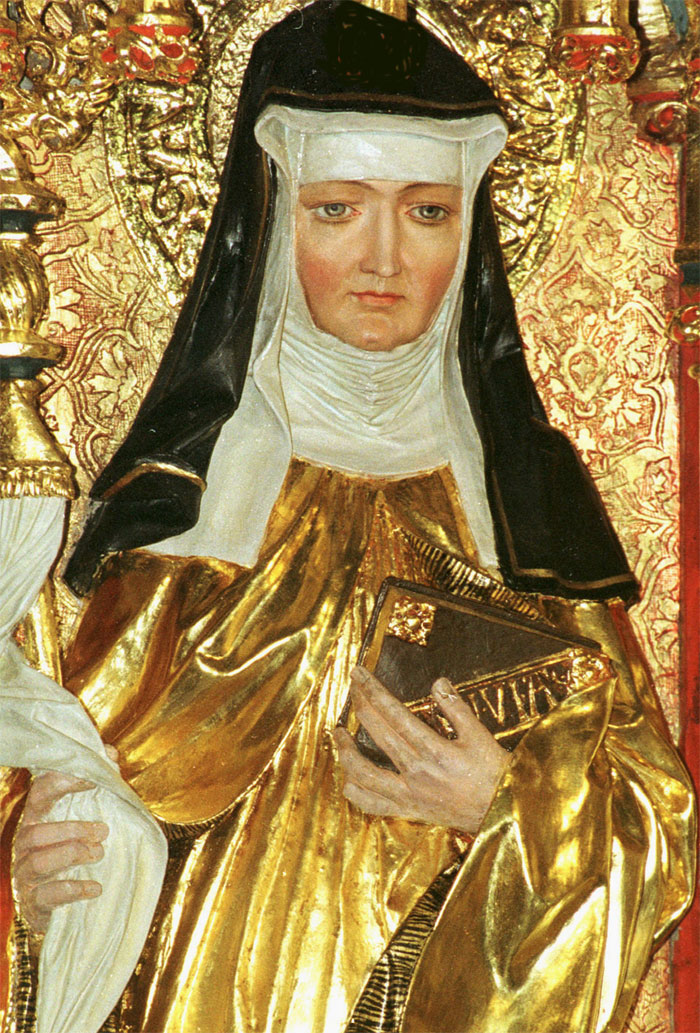 In Saint Hildegard of Bingen there is a wonderful harmony between teaching and daily life. In her, the search for God’s will in the imitation of Christ was expressed in the constant practice of virtue, which she exercised with supreme generosity and which she nourished from biblical, liturgical and patristic roots in the light of the Rule of Saint Benedict. Her persevering practice of obedience, simplicity, charity and hospitality was especially visible.
In Saint Hildegard of Bingen there is a wonderful harmony between teaching and daily life. In her, the search for God’s will in the imitation of Christ was expressed in the constant practice of virtue, which she exercised with supreme generosity and which she nourished from biblical, liturgical and patristic roots in the light of the Rule of Saint Benedict. Her persevering practice of obedience, simplicity, charity and hospitality was especially visible.
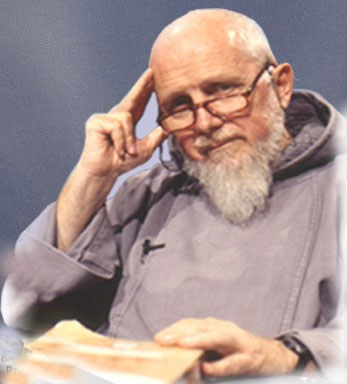
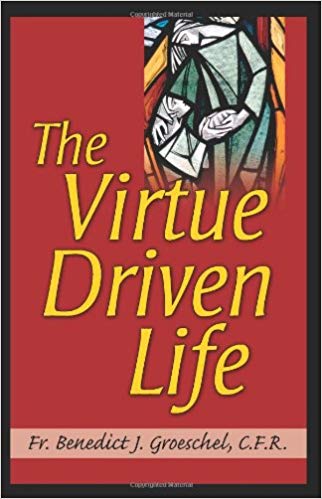
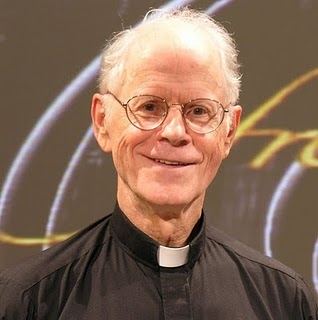 It was with great joy we had the opportunity to talk with Fr. Thomas Dubay. His work on “Fire Within” and all the programs he gave us on EWTN was instrumental in my spiritual growth. In those early days, he was like having a distant spiritual director who guided me, as well as the rest of us, toward a deeper relationship with Christ.
It was with great joy we had the opportunity to talk with Fr. Thomas Dubay. His work on “Fire Within” and all the programs he gave us on EWTN was instrumental in my spiritual growth. In those early days, he was like having a distant spiritual director who guided me, as well as the rest of us, toward a deeper relationship with Christ.
